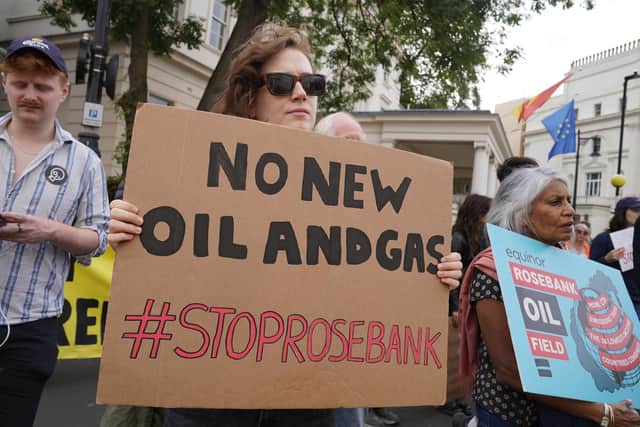Tackling the climate crisis won’t fuel poverty if polluters to pay their fair share - Olivia Blake
Climate change is a burden not shared equally. Catastrophic flooding in Libya and unprecedented drought in the Horn of Africa tell us that. These crises also often receive far less attention – and financial support – than they deserve. In the UK, we may have the fortune of being shielded from the worst of climate impacts, but the crisis is exacerbating existing inequalities here, too, and it will continue to do so unless the government changes course.
The recent approval of the climate-wrecking Rosebank oil field is a stark example – whilst its owners will enjoy a £3.7bn subsidy, paid for by the taxpayer, everyday people endure a biting cost-of-living crisis and still eye-watering energy bills. But the injustice doesn’t end there – from the dirty air that communities in deprived urban areas are most exposed to, to the low-income households whose poorly insulated homes leave them most exposed to temperature extremes, or those stuck on rip off prepayment meters, or who want to decarbonise their homes but can’t afford the cost.
Advertisement
Hide AdAdvertisement
Hide AdThe UK is already one of the most unequal countries in Europe. With the right policies in place, the transition to net zero could improve the lives of people on lower incomes. But rather than tackle the climate crisis in a fair way, the Prime Minister’s solution is to dial back on the very commitments designed to lead us out of it.


The government wants us to believe there’s a choice between tackling the climate crisis and saving people money. But reaching net zero doesn’t have to cost us all the earth – instead we could look to the vast resources that exist in the hands of the biggest polluters. From the billions in public money that is propping up fossil fuel producers (including those set to develop Rosebank), to the vast profits energy giants continue to amass, or the missed revenue from proper taxes on highly polluting activities that are the preserve of the ultra-rich, such as the use of private jets. There is no shortage of options to raise money in this way.
An Oxfam report published recently finds that had common-sense ‘polluter pays’ measures been in place, up to £23bn could have been raised for the Treasury in 2022 alone. This is the same year that devastating floods impacted 33 million people in Pakistan, the UK marked its hottest 12 months on record and the five biggest fossil fuel companies raked in a combined profit of $200bn.
It’s no surprise that this approach to policy is popular, with a new poll finding that 60 per cent of the British public think increasing taxes or ending subsidies on fossil fuel companies should be used to support lower-income countries to weather climate breakdown.
Advertisement
Hide AdAdvertisement
Hide AdAmong the recommendations in Oxfam’s report is a re-design of the ‘energy profits levy’ – the government’s quasi-windfall tax that hands vast subsidies to oil and gas companies for investment in the dirty fuels that got us into this mess. It would be a logical step to scrap this ‘investment allowance’, which hands £45 back to fossil fuel producers for every £100 they invest in new oil and gas, and impose an automatic tax, at a fair rate, on excess profits from fossil fuel production.
Alongside protections to ensure costs are not passed down to consumers, the revenue generated could help protect lower-income households from the costs of reaching net zero. It would also act as a disincentive for the production of polluting fuels and, alongside Labour’s plan for a publicly owned clean energy company, could provide a powerful motor in the race to renewables that the UK is currently trailing behind in.
But the government need not only look to fossil fuel producers to fund a fairer future. With the richest 1 per cent responsible for double the carbon emissions of 3.1 billion people that make up the world’s poorest half of humanity, there is no avoiding that extreme wealth and responsibility for climate change are also closely linked.
Tax Justice UK, along with a group of millionaires asking to be taxed more, have identified six progressive taxes that could raise £50bn per year. This includes scrapping non-dom status, which Labour has already pledged to do. Although significant sums would undoubtedly need to be spent improving all our vital public services, the effective functioning of social infrastructure ultimately depends on a healthy planet. It would not be unreasonable to build a system of fair taxes to play a part in ensuring that. As well as investing in our own path to net zero, public spending for climate change must also better support lower-income countries, who are being trapped in cycles of debt and poverty by a crisis they have not caused.
Olivia Blake is the Labour MP for Sheffield Hallam.